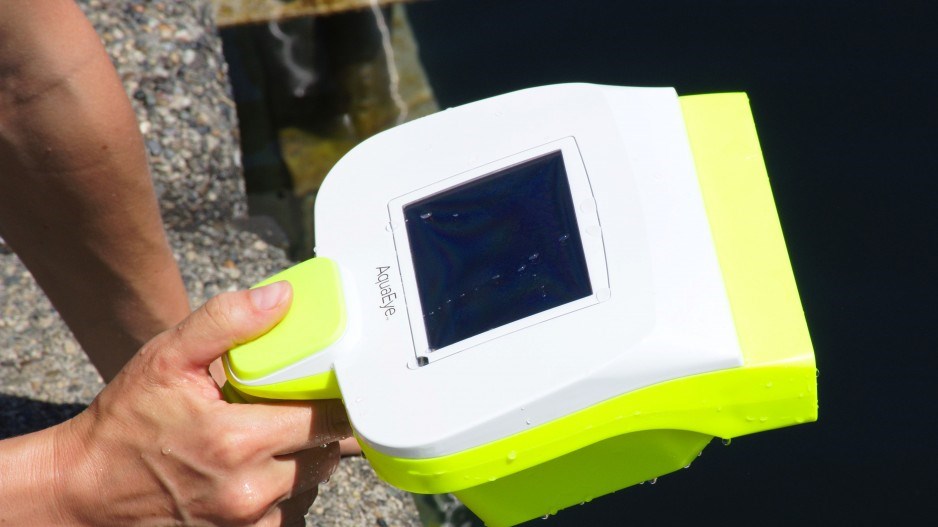What happened: Vodasafe raises $1.4 million in seed-funding round
Why it matters: Vancouver-based company has developed technology aimed at scanning water in the event of a potential drowning
If a lifeguard spots a potential drowning at a beach, he or she might have five minutes to throw on some goggles and begin diving in a grid-like pattern.
“Which if you know what it’s like to be underwater in B.C., you stick your hand out in front of you, you can barely make out your fingertips,” says Carlyn Loncaric, founder and CEO of Vodasafe Inc.
Her Vancouver-based tech company aims to help first responders sidestep those situations with a handheld device capable of scanning for human bodies underwater as emergency situations unfold.
The radar-gun-like hardware known as AquaEye is also catching the eye of investors, with Vodasafe on Thursday (July 30) closing a seed-funding round to the tune of $1.4 million.
Vancouver-based Vanedge Capital Partners Ltd. led the funding with participation from the Business Development Bank of Canada and a pair of undisclosed venture capital firms.
The devices rely on both sonar and artificial intelligence, and can scan 85,000-square-feet of water in less than five minutes once it’s been submerged.
The AI algorithm has been taught to identify human bodies as it analyzes the often-confusing echoes coming back from the water.
“The biggest advantage is how quickly you can get into water and just starting scanning right away,” said Loncaric, adding first responders need not dive into the water for it to be effective.
Instead, it’s generally meant to be used on a boat or a wharf, while users grip it with their hand and hold it beneath the water as they scan.
The CEO would not disclose how much the devices cost but said customers are typically happy to find out they are less expensive than they imagined.
The primary market will be organizations supporting first responders such as lifeguards, search and rescue teams, and police and fire departments.
Loncaric said the goal is to expand to the consumer market in the future so that the devices will eventually be in possession of families with lakeside properties.
The $1.4 million in seed funding will be used to help get Vodasafe’s name out to potential customers as well as for investments in the technology.
The company’s seven-person team is about evenly split between engineering, and sales and marketing.
Loncaric said she will be using the capital to grow both teams.
Vanedge was an early investor in the company, dating back to 2017 when it supported Vodasafe through a pre-seed round.
“Hardware is a definitely a difficult thing to raise for,” she said.
“They took a chance on me because at the time, when they first invested, it was just me. I had a prototype and I went in with a lot of questions and passion. I think they just hooked onto that.”
The company is focusing first on the North American marketing this year with plans to venture into Europe beginning in 2021.




